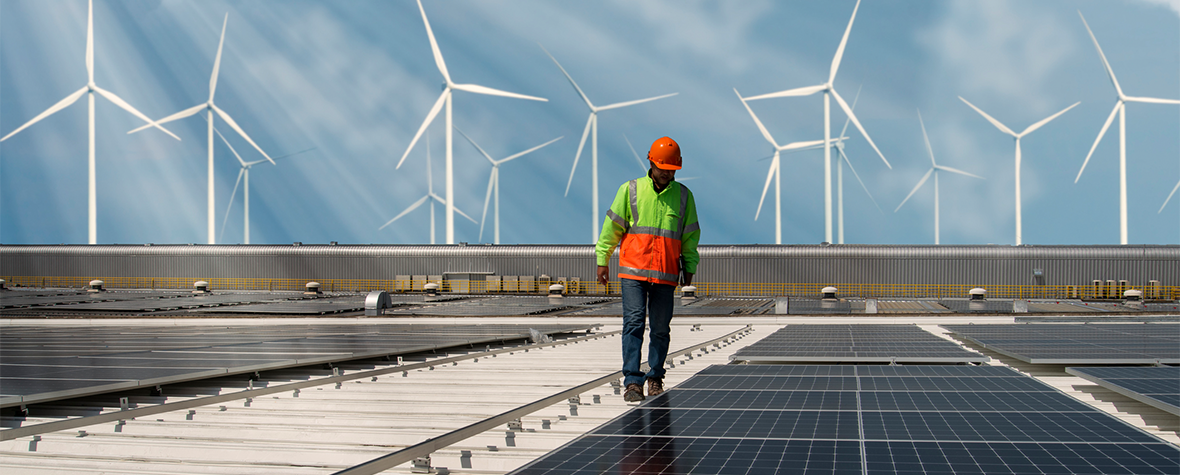The MCE Cares series focuses on the impacts of climate change, climate action strategies, and the ways you can make a difference. The climate is in our hands. What action will you take?
Human activity is changing our climate at an accelerated rate. These global shifts are changing ecosystems, raising sea levels, and shifting weather patterns. Our environment is inextricably linked to our health. Impacts from climate change include increased spread of disease, food and water insecurity, and degrading air quality.
Climate change is potentially the biggest global health threat of the century, and yet only 15% of countries have developed health-focused climate action plans. We must mitigate the climate crisis to protect our health and the health of future generations.
What are the effects on your health?
Cardiovascular Health
In elderly populations, extreme heat due to climate change is expected to cause an additional 38,000 deaths per year. High temperatures cause the heart to work overtime to keep the body cool, increasing the occurrence of heart attacks and strokes.
Respiratory Health
Nine out of 10 people in the world breathe unhealthy air. Greenhouse gas emissions lead to indoor and ambient air pollution, which causes over 7 million deaths per year. Warmer temperatures lead to an increase in allergen production, triggering asthma and allergic conjunctivitis. The United States pollen season increased by 11 to 27 days between 1995 and 2015. Warm and humid conditions increase the prevalence of fungi and mold that cause upper respiratory tract infections.
Disease
The Intergovernmental Panel on Climate Change (IPCC) reports a high confidence that severe weather events due to climate change will exacerbate the spread of water-borne diseases, leading to diarrhea, intestinal illness, and eye and ear infections. Climate change is also expected to impact the distribution and prevalence of such insect-borne diseases as malaria, Lyme disease, and Dengue fever. These diseases are highly responsive to changes in temperature and precipitation. Incidences of Lyme disease in the United States have nearly doubled since 1991. By 2080, up to 320 million more people could be exposed to malaria due to new levels of transmission.

(Graphic: NCBI)

(Graphic: APHA)

(Graphic: EPA)
Nutrition
Climate change can affect food security by decreasing crop yield and quality while increasing the price of food. Changes in weather patterns and CO2 concentrations directly impact weed and insect populations, spoilage levels, and the nutritional content of crops. Climate change-related nutritional deficiencies are expected to lead to stunting in an additional 7.5 million children by 2030.
Natural Disasters
Climate change increases the frequency and severity of natural disasters such as wildfires, floods, and hurricanes. These weather-related natural disasters have more than tripled since the 1960s and result in over 60,000 deaths per year. These events limit access to food and drinking water and disrupt the availability of healthcare services. In California, the risk of wildfires has increased drastically in recent years due to high temperatures and low humidity.
Bay Bridge During the 2020 California Wildfires

(Graphic: NCBI)
What can we do?
It’s essential that we prepare for the health impacts from climate change and develop proper adaptation plans. Programs such as the California Building Resilience Against Climate Effects (CalBRACE) project aim to prepare for the impacts of climate change by developing local health adaptation plans. Adaptation plans offer health and safety resources to vulnerable populations, alert the public about extreme weather events, and share information about community programs. Most importantly, we must drastically reduce emissions to mitigate the worst health effects from climate change. Reduce your carbon footprint by choosing sustainable transportation, reducing waste, and switching your electricity service to a more.
How can MCE help?
If you’re looking for ways to reduce your own climate impact, MCE can help. We offer a variety of customer programs that can help shrink your carbon footprint while improving the health and safety of your home.
Home Health & Safety Improvements
The MCE Healthy Homes Program has helped income-qualified residents address health hazards in their homes through energy efficiency improvements, such as insulation and heating and cooling repair, that increase comfort and decrease energy usage. Integrated pest management and mitigation of mold and moisture also help customers stay safely in their homes and reduce the risk of climate-related illnesses. Learn about the 8 Elements of a Healthy Home (pdf) that keep your home healthy, safe, and energy-efficient.
Air Purifiers
Poor outdoor air due to wildfires can leak into improperly conditioned homes, causing severe health risks for people who have chronic respiratory issues. MCE has purchased over 100 air purifiers and 300 replacement filters to give away to income qualified residents in advance of this year’s fire season. MCE partnered with Marin Community Clinics to assist in identifying the recipients in need of the air purifiers.
Rebates on Clean Technology
MCE’s income-qualifying home energy and EV rebates help customers access clean energy technology that can help in the fight against climate change. Our Energy Storage Program is helping customers across our service area access new battery backup technology to lower greenhouse gas emissions, while keeping the lights on during outages. Finally, MCE’s EV charging rebate program helps workplaces and multifamily properties do their part by making it easier for tenants and employees to consider adopting an EV.
100% Clean Energy
MCE can help you go 100% renewable with our Deep Green service option. For just $5 more a month for the average residential customer, you can opt up and choose 100% California wind and solar power for your home or business. See who’s taken the lead and gone Deep Green on our Deep Green Champions page and join the movement yourself.
To learn more about the ways MCE is helping our customers take action in the fight against climate change, visit our Customer Programs page. The climate is in our hands. What action will you take?




